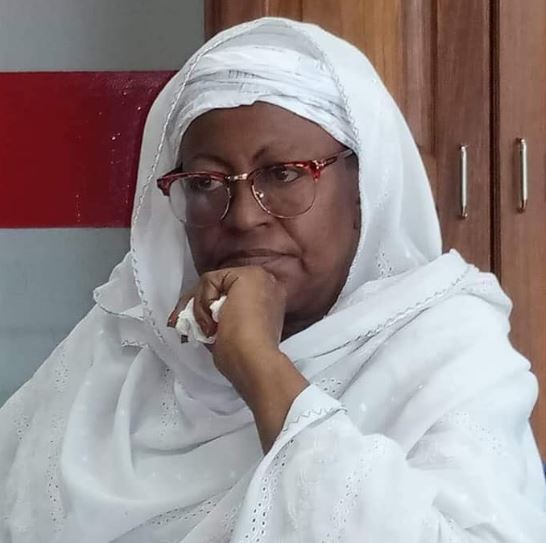By Nelson Manneh
Adelaide Sosseh, the vice chair of the Truth, Reconciliation and Reparations Commission (TRRC) has recently remarked that there is nothing of greater importance to human beings than knowing the truth.
“For the person that has done wrong, it is liberating that is why in the TRRC we say: the truth shall set you free. For the person that has been wronged, knowing the truth enables them to have closure, to forgive and reconcile and for the nation to learn lessons from knowing the truth and commit to non-recurrence of the wrongs,” she said.
Sosseh said the TRRC was tasked with the responsibility of investigating the truth, searching for and finding the truth of what transpired in The Gambia from July 1994- January 2017, to establish an impartial, historical record of the nature causes and extent of the violations that occurred during this period and to consider the granting of reparations to victims. The public hearings provided a platform to search for the truth, she added.
“Establishing the truth is not easy as in many instances the person narrating the story may see it from their own perspective or are simply not being truthful. We had the difficult task of separating truth from falsehood and we had to pray daily that Allah the Almighty would bless us with the wisdom to decipher the truth in an impartial and sincere manner,” she said.
She said sitting through the hearings also was not an easy task, saying it was emotionally, physically, and mentally exhausting.
“We are grateful to the Almighty that we were able to survive the public hearings intact as a team. I thank my fellow commissioners for their due diligence, their respect, and their resilience that enabled them to sit through the public hearings,” she said.
“The public hearings have had a profound impact on Gambians, many of whom were hearing these narratives for the first time or who had heard them before and just brushed them off as rumours. The victims have come and narrated their stories. The perpetrators have also testified before the Commission and experts have come to help us to understand the nature and the causes of the violations. We thank each and every one of them for helping us in our search for the truth which we have brought to the public domain.”
Madam Sosseh said as the public hearings of the TRRC were broadcast globally and have been watched and listened to not only by Gambians at home and abroad and by non-Gambians, people have been given the opportunity to hear first-hand about the atrocities that have been meted out to Gambians and non-Gambians alike. She said myths have been dispelled that Gambians are a friendly and God-fearing people and that they would not harm a fellow human being much less a compatriot.
“The Smiling Coast which was hailed as a bastion of human rights to the extent that the African Commission on Human and Peoples’ Rights (ACHPR) had its seat in Banjul was slowly eroding the principles and values that it was known for,” she said.
TRRC vice chair said the public narratives of the survivors which they have heard depicted the realities of The Gambian situation during the period July 1994-January 2017. She said the killings, enforced disappearances, torture, unlawful arrests and detentions, and sexual gender-based violence, and other violations resulted in a reign of terror and fear, wasn’t a good story.
“We have to reflect on our past mistakes to right the wrongs and to commit to Never Again. Public memory of the 22 years of tyranny in The Gambia now rests on the collective efforts to keep the painful stories of survival and of loss alive in the public domain.
“To deliver on its “Never Again” promise, the TRRC will endeavor to preserve the stories and retell them in a manner that is impartial, befitting, compelling, meaningful, and appropriate so that they resonate with future generations, while remaining sensitive to the victims and being mindful of their interests.
“Victim participation in the TRRC public hearings and processes were enhanced through the Victim Participation Support Fund established by the United Nations Peacebuilding Fund, through the UNDP and the Office of the High Commission on Human Rights (OHCHR) Project. The Fund provided support for the immediate, basic, mobility, medical, psycho-social, and protection needs of victims, their family members, witnesses, and informants as well as for the investigation processes- statement-taking, investigations that fed the public hearings,” she said.
Vice chair Sosseh noted that the participation of women especially survivors of sexual gender-based violence were limited in the TRRC processes as of January 2020, the Government of Ireland also provided dedicated support to victims and survivors of SGBV through the Fund to enhance their participation.

















